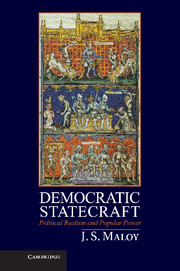3 - From the Sophists to Aristotle
Institutions Lie
Published online by Cambridge University Press: 05 March 2013
Summary
Philosophy, noun. A route of many roads leading from nowhere to nothing.
Ambrose Bierce, The Devil’s DictionaryA plague descended on the Mediterranean world in the fifth century B.C., afflicting souls rather than bodies. So the fathers of Western philosophy have taught us, at any rate. The locusts in question were highly educated nomads who gathered in prosperous cities like Athens, where they made their living by giving lessons in various branches of knowledge, especially the art of public speaking. These were the Sophists, “men of wisdom.”
They flourished in regimes with prominent institutions of popular rule like citizen assemblies and jury courts, where matters of wealth and power often turned on rhetoric and persuasion. They first set up shop on the island of Sicily, whose eastern shore became a cradle of democracy after tyrants had been ejected from cities like Syracuse and Leontini. There rhetoricians began presenting arguments in lawsuits and political debates which appealed to the standard of probable judgment rather than certain proof, and good reasons often appeared on either side of a case. To men who preferred to be known as philosophers, “lovers of wisdom,” such methods led down a slippery slope of moral evil. At the same time, many Sophists were class traitors: cultured and wealthy men who taught civic leaders how to pander to vulgar opinion and to sideline the better elements of society. The famed dialogs of Plato are largely composed of aristocratic bitch sessions in this vein. Today’s Sophists, paid college professors, lavish attention on Plato while ignoring his archenemies, their own direct forebears.
- Type
- Chapter
- Information
- Democratic StatecraftPolitical Realism and Popular Power, pp. 42 - 72Publisher: Cambridge University PressPrint publication year: 2013



